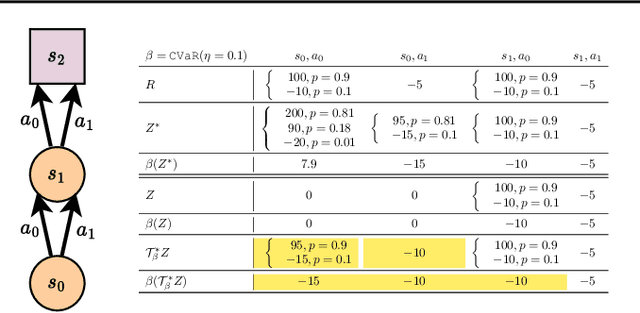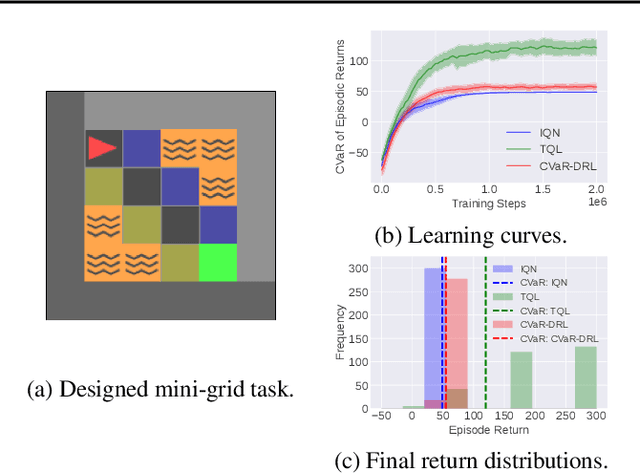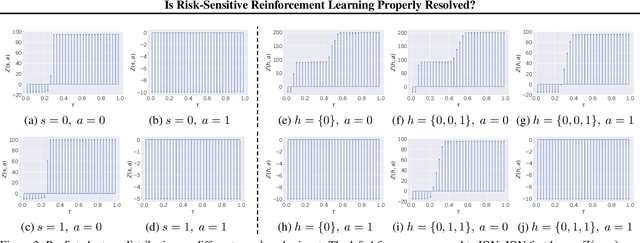Is Risk-Sensitive Reinforcement Learning Properly Resolved?
Paper and Code
Jul 02, 2023



Due to the nature of risk management in learning applicable policies, risk-sensitive reinforcement learning (RSRL) has been realized as an important direction. RSRL is usually achieved by learning risk-sensitive objectives characterized by various risk measures, under the framework of distributional reinforcement learning. However, it remains unclear if the distributional Bellman operator properly optimizes the RSRL objective in the sense of risk measures. In this paper, we prove that the existing RSRL methods do not achieve unbiased optimization and can not guarantee optimality or even improvements regarding risk measures over accumulated return distributions. To remedy this issue, we further propose a novel algorithm, namely Trajectory Q-Learning (TQL), for RSRL problems with provable convergence to the optimal policy. Based on our new learning architecture, we are free to introduce a general and practical implementation for different risk measures to learn disparate risk-sensitive policies. In the experiments, we verify the learnability of our algorithm and show how our method effectively achieves better performances toward risk-sensitive objectives.
 Add to Chrome
Add to Chrome Add to Firefox
Add to Firefox Add to Edge
Add to Edge